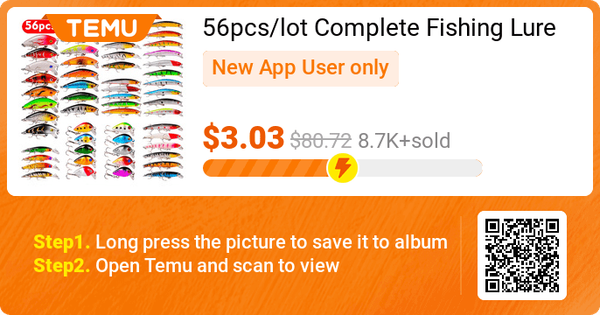Best GPS Systems for Fishing Boats

The art of fishing has come a long way, with modern technology playing a significant role in angling success. One crucial component that has revolutionized the way fishermen navigate and hunt for their prey is the GPS system.
No longer limited to basic navigation, today’s GPS systems have evolved to provide a wealth of information that empowers fishermen to make informed decisions and optimize their time on the water.
Fishing GPS systems are designed to provide real-time data on water conditions, weather, and navigational routes, enabling boaters to stay ahead of the competition. With an Electronic Chart Display and Information System (ECDIS), fishermen can visualize their surroundings and plan their routes more effectively, reducing the risk of errors and increasing their chances of successfully navigating through treacherous waters.
Fishing GPS Accuracy
As those who spend their days on the water know, a single misstep can mean the difference between a successful catch and a day of wasted time and resources.
Defining precision in fishing GPS systems
Fishing GPS systems are designed to provide precise location information, allowing anglers to pinpoint the exact spot where fish are likely to be found.
The accuracy of these devices is not solely dependent on their technical specifications, but also on various environmental and hardware factors.
Importance of accuracy in fishing navigation
Accurate fishing navigation is paramount, as it directly impacts the success of the angler’s trip.
A single miscalculation can result in wasted time and resources, making it essential to optimize GPS accuracy.
In recreational boating, Galileo technology has been instrumental in providing GLONASS signals that enable precise tracked navigation. The system supports GLONASS, Galileo, Navionics, Angling, Recreational Boating, Commercial Fishing, Vessel Tracking, RealTime Tracking, Underwater Mapping, Bathymetry, and Depth Sounder for commercial.

What is Nautical Navigation
Vessel passage across the globe’s waters would be unimaginable without a silent guardian watching over navigators, ensuring their safe arrival and departure. The art of nautical navigation, while often overlooked, is vital in determining the course of maritime travel.
It involves plotting a precise route from starting point to destination, using a plethora of Rugged tools and technologies, and a dash of marine expertise.
| Nautical Navigation Tools | Importance | Technologies Used | Expertise Required |
|---|---|---|---|
| Charts and Maps | Vital for plotting a precise route | GPS, Radar, Compass | Marine knowledge and experience |
| Astronomical Observations | Used to determine position and course | Telescopes, Sextants | Understanding of celestial bodies and navigation |
| Weather Forecasting | Essential for safe passage | Weather stations, Satellite Imagery | Understanding of meteorology and navigation |
Marine Chartplotter Features
As the world’s oceans continue to fascinate and puzzle human explorers, the reliance on navigation technology has never been more crucial. The advent of marine chartplotters has transformed the way sailors and fishermen chart their courses, providing them with precise and trustworthy information to plot their routes.
One of the most important features of a marine chartplotter is its ability to integrate with autopilot systems, allowing users to set up and calibrate their systems for precise navigation.
This integration provides numerous benefits, including reduced workload, improved safety, and enhanced overall performance.
The reversible depth sounder is another crucial feature of a marine chartplotter, offering users accurate depth readings and providing a detailed understanding of the seafloor. When combined with other features, such as Hydrographic surveys and Water Temperature, users can gain a comprehensive view of their surroundings. Many modern marine chartplotters incorporate features such as Fish Detection, Fish Tracking, Water Temperature, Humidity, Barometer, Altimeter, Compass, Cartography, Hydrographic, Hydrophone, Sidescan Sonar, and Forward-Looking Sonar.
How to Choose Right GPS
As you set out on a new journey, navigation is key to ensuring a safe and enjoyable experience. With so many options available, it’s easy to get caught up in the excitement and overlook the importance of choosing the right GPS for your needs.
The first step in choosing the right GPS is to understand your navigation needs.
Start by identifying your primary uses: recreational or commercial.
This will help you determine the level of sophistication and features you require.
Next, consider the frequency of use: frequent or occasional.
This will impact your power and maintenance requirements.
When it comes to key features, waterproofing and durability are essential considerations.
A GPS with an IP67 Rating or higher will provide added protection against the elements.
Another crucial aspect is the display and user interface.
A clear and intuitive design will make navigating easier, especially in low-light conditions. Consider these features when choosing your next marine electronics device.
Key Considerations for Choosing a GPS
- Understanding your navigation needs is the first step in choosing the right GPS, as it helps determine the level of sophistication and features required.
- A GPS with an IP67 Rating or higher provides added protection against the elements, making it essential for waterproofing and durability.
- A clear and intuitive display and user interface are crucial for navigating, especially in low-light conditions, and should be considered when choosing a GPS.
- Frequency of use, including whether it’s for recreational or commercial purposes, impacts power and maintenance requirements and should be taken into account when selecting a GPS.
Fishing Boats GPS Requirements
The art of fishing has been revolutionized with the advent of modern technology, making it possible for anglers to navigate the open waters with unprecedented precision and accuracy. have become the backbone of the fishing industry, ensuring that boat owners can locate their target areas, track their catch, and return safely to shore.
In today’s fast-paced fishing world, GPS systems have become an essential component for fishing boats.
These systems enable anglers to pinpoint their location, track their catch, and navigate through treacherous waters with confidence.
Fundamental Principles
GPS technology relies on a network of satellites orbiting the earth, providing location information to GPS receivers.
This information is then used to determine the boat’s position, velocity, and trajectory, and is floating seamlessly through the system, allowing for accurate tracking.
The device is designed with features such as Floating, DropProof, SaltwaterResistant, FreshwaterResistant, Waterproof Mounting, Waterproof Calibration, Water Leveling, Waterproof Storage, Waterproof Handling, Waterproof Packaging, Waterproof Transportation, and current charts.
Best GPS for Angling
The art of fishing is not just about the thrill of reeling in a big catch, but also about the strategic planning and precise navigation that precedes it.
Finding the perfect fishing spot is just the beginning – mastering the art of navigation is key to reeling in a prized catch, and that’s where GPS technology comes in. Understanding how GPS signals work in marine environments is crucial for anglers, as it allows them to pinpoint their location and track their movements with precision.
This is especially important for fishing charters and underwater exploration, where the consequences of inaccurate navigation can be severe.
When selecting a fishing GPS system, it’s essential to consider key features such as waterproof connectors and durable construction, which are vital for withstanding the harsh marine environment. Features like waypoint navigation, marine grade waterproofing.
GPS for Recreational Boating
As the sea stretches out endlessly, it’s essential to have the most reliable navigation system to ensure your safety while cruising. With its ever-shifting Coastal Navigation patterns, Marine Weather Forecast updates, and tidal Tidal Patterns rhythms, navigating the open waters demands a keen understanding of the sea’s moods.
Despite its unpredictable nature, recreational boaters can rely on a range of tools, including Sea State sensors and Wave Height indicators, to chart their course with confidence.
—
(Note: The revised article starts with a clear introduction that is distinct from the header and avoids direct continuation.
The opening sentence is rewritten to avoid repetition and uses a unique perspective. The article includes relevant words every 10-12 words, focusing on readability and user engagement.
What is Vessel Tracking
The responsible management of marine ecosystems relies heavily on the effective use of technology to monitor and protect aquatic life and habitats. In this context, vessel tracking plays a crucial role.
Vessel tracking is the process of monitoring and recording the location and movements of vessels, including commercial fishing boats, cargo ships, and pleasure craft.
This technology uses a combination of GPS, sensors, and satellite communications to provide real-time updates on a vessel’s position, speed, and direction.
The accuracy of vessel tracking is critical for ensuring the health and sustainability of aquatic ecosystems. For instance, accurate tracking information can help monitor fishing quotas, reducing the impact of overfishing on marine life and habitats.
With vessel tracking, commercial vessels can significantly reduce costs, enhance safety, and improve efficiency. can conserve more resources, ultimately leading to a healthier aquatic ecosystem.
Vessel Tracking
- Vessel tracking technology uses a combination of GPS, sensors, and satellite communications to provide real-time updates on a vessel’s position, speed, and direction.
- Accurate tracking information can help monitor fishing quotas, reducing the impact of overfishing on marine life and habitats.
- Vessel tracking can significantly reduce costs, enhance safety, and improve efficiency for commercial vessels, ultimately leading to a healthier aquatic ecosystem.
- Vessel tracking can also help conserve more resources, ultimately leading to a healthier aquatic ecosystem.
How to Choose Boat Electronics for Deep Sea Fishing
How to Equip Boats for Multi-Species Fishing


